27+ Sample Meal Planning
-
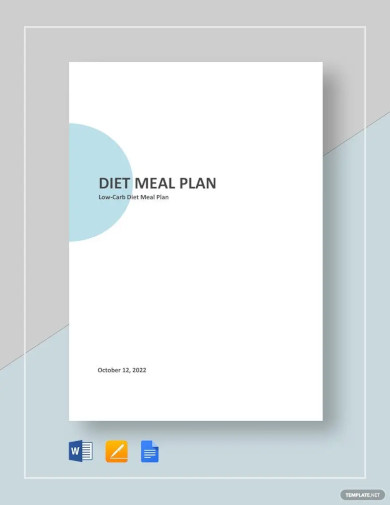
Diet Meal Planning
download now -
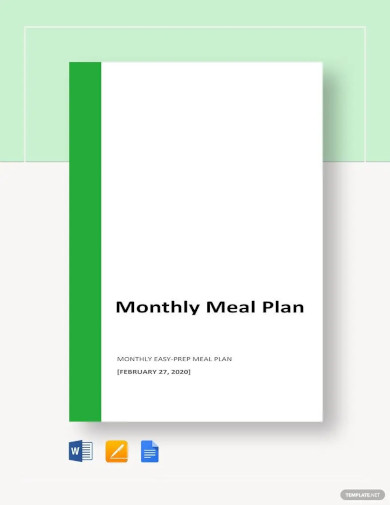
Monthly Meal Planning
download now -
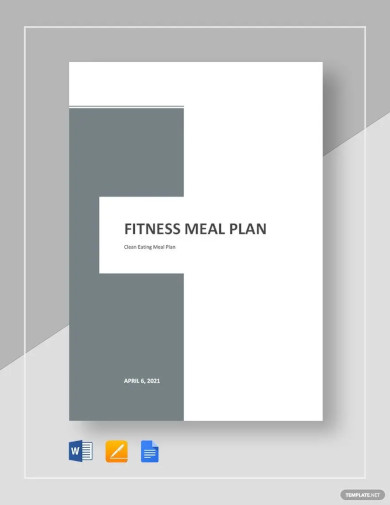
Fitness Meal Planning
download now -
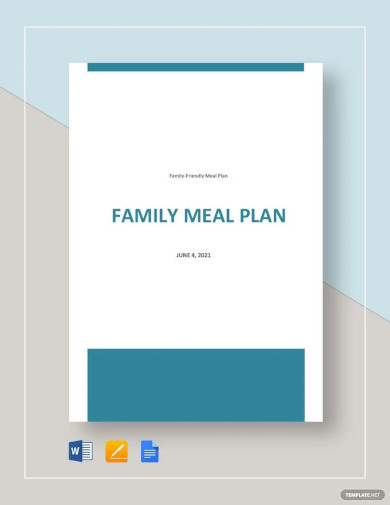
Family Meal Plan
download now -
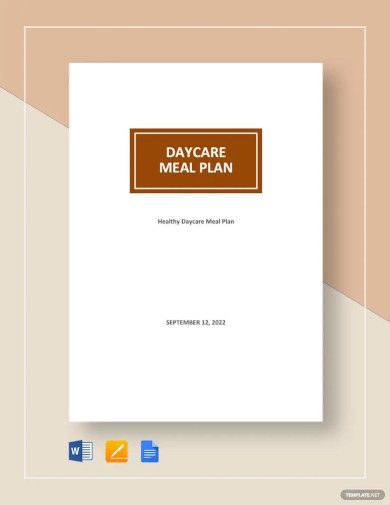
Daycare Meal Planning
download now -
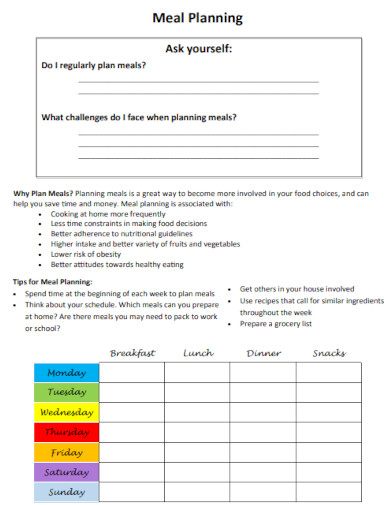
Printable Meal Planning
download now -
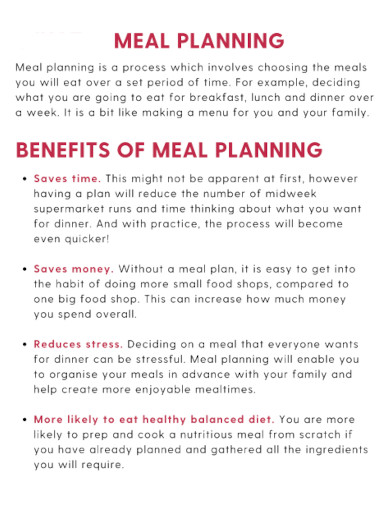
Meal Planning Outline
download now -

Healthy Meal Planning
download now -
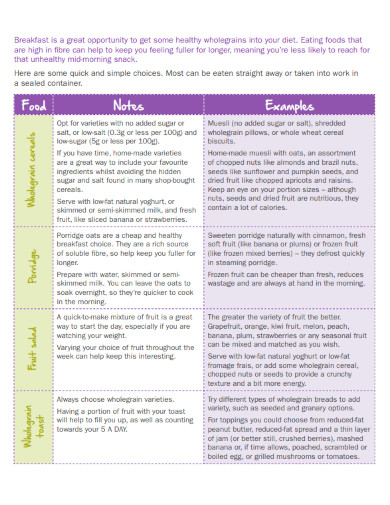
Food Meal Planning
download now -
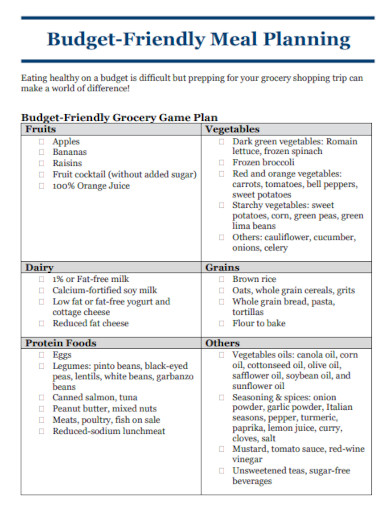
Budget-Friendly Meal Planning
download now -
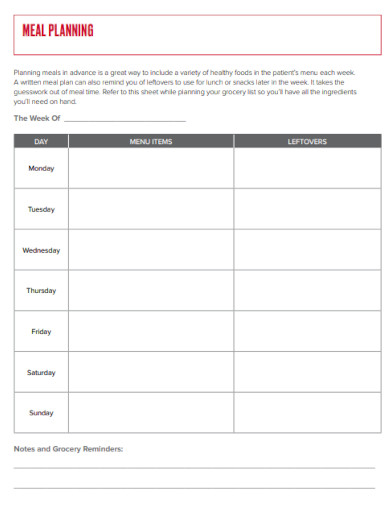
Weekly Meal Planning
download now -
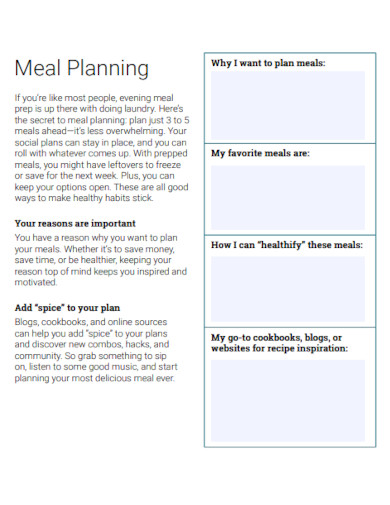
Professional Meal Planning
download now -
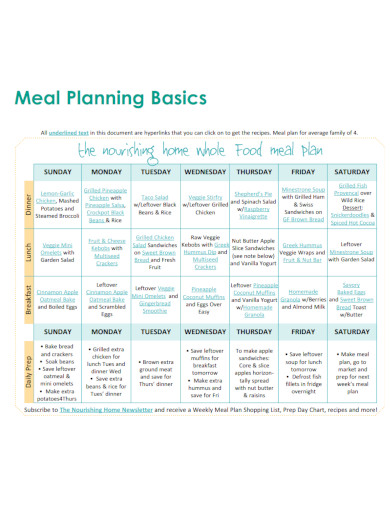
Basic Meal Planning
download now -
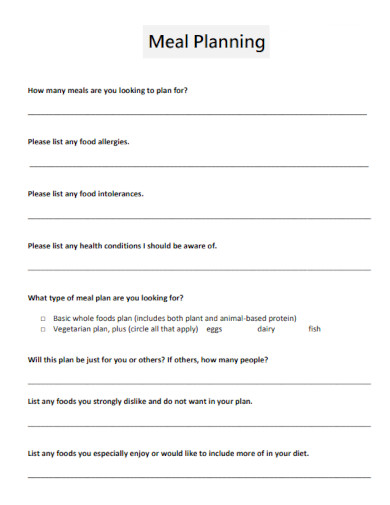
Personal Trainer Meal Planning
download now -
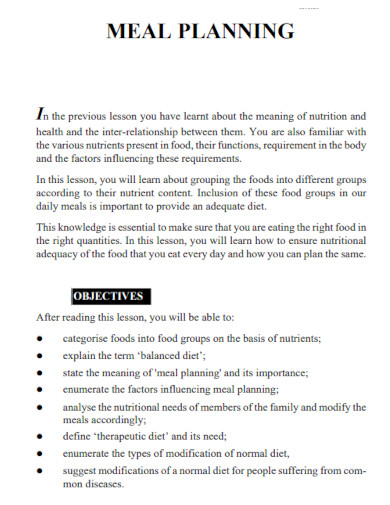
Meal Planning Example
download now -
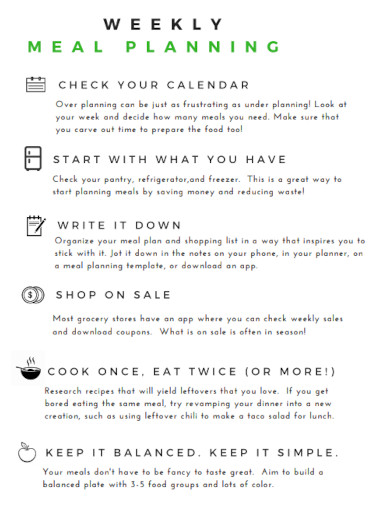
Creative Meal Planning
download now -
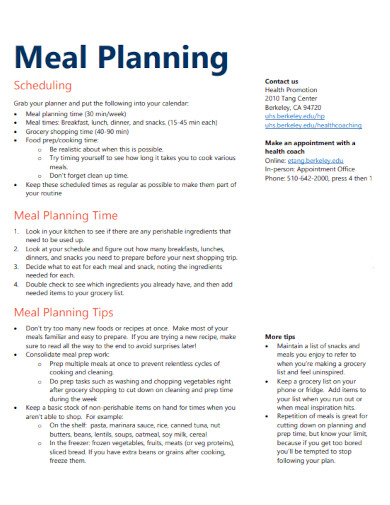
Diabetic Meal Planning
download now -
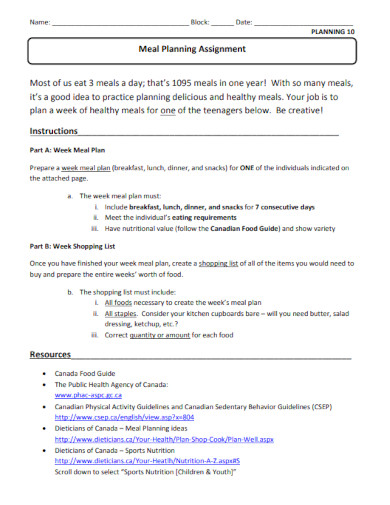
Meal Planning Assignment
download now -
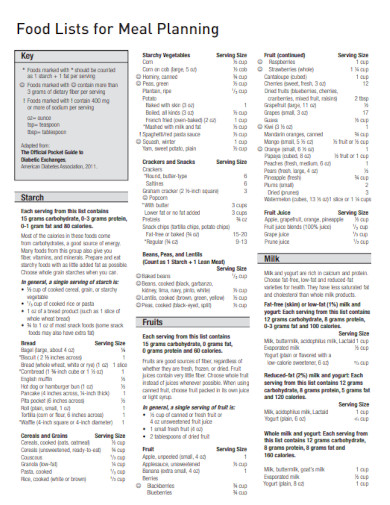
Food Lists for Meal Planning
download now -
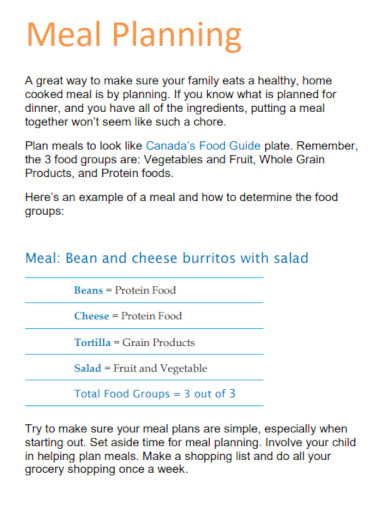
Home Meal Planning
download now -
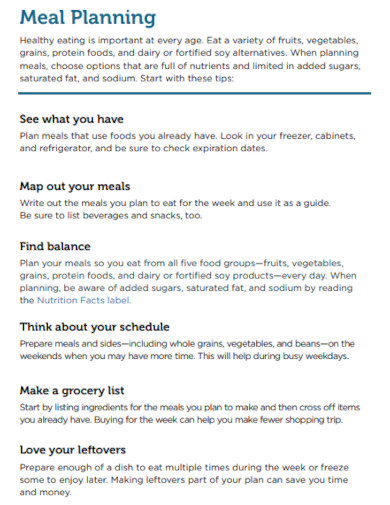
Fruits and Vegetables Meal Planning
download now -
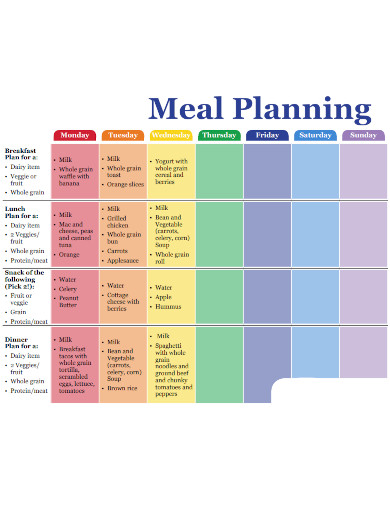
Meal Planning Design
download now -
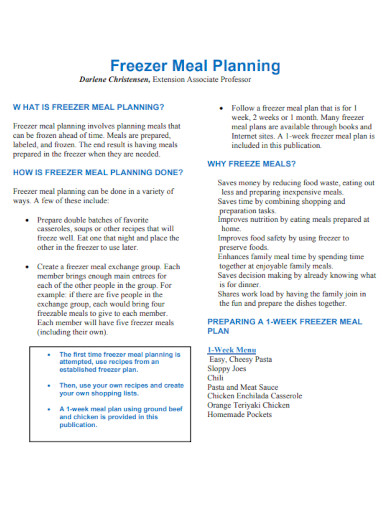
Freezer Meal Planning
download now -
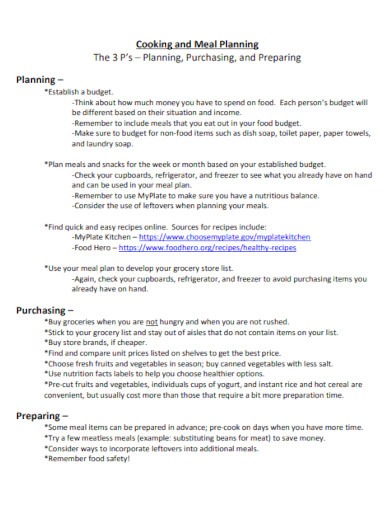
Cooking and Meal Planning
download now -
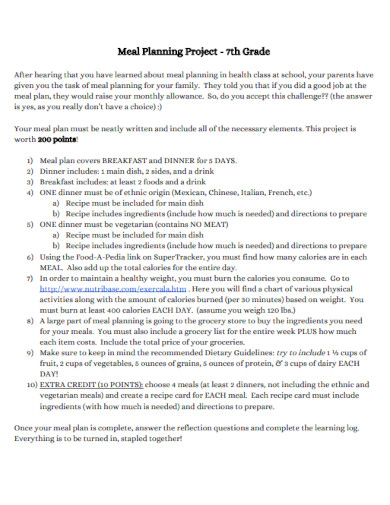
Meal Planning Project
download now -
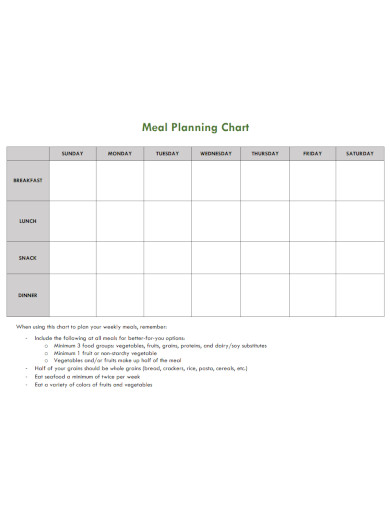
Meal Planning Chart
download now -
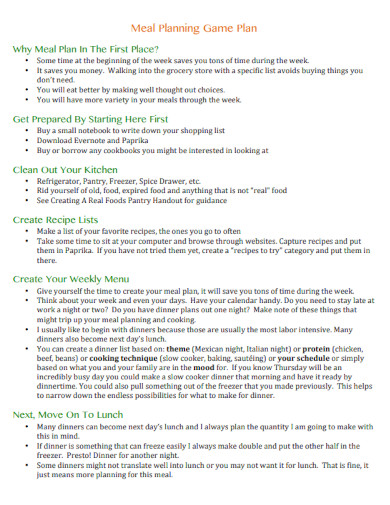
Meal Planning Game Plan
download now -
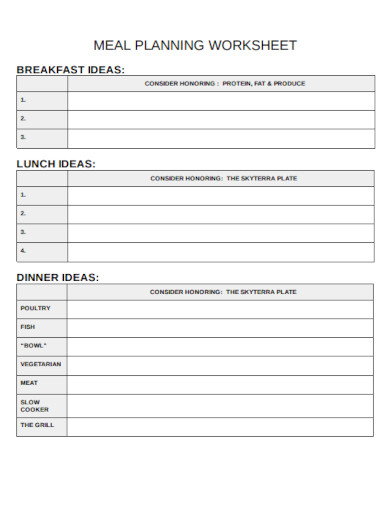
Meal Planning Worksheet
download now
What Is a Meal Plan?
Healthy meal planning is simply preparing and writing down your meals for the week in advance—plan for yourself or your family. Plan nutritious meals and at least one night out. Plan every refreshment and meal, or just your lunches, to avoid spending money on restaurant meals during the week. You can make meal plans as flexible or as rigorous as you like! It doesn’t matter what you plan so long as you’ve considered it! The objective is not to start from scratch for every meal. There are numerous reasons why meal planning and preparation are fantastic. Still, they all fall into three main categories: saving time, saving money, and having more control over food selections.
Benefits of Meal Plans
We comprehend the difficulties of cooking all too well. In addition to cooking, there is also writing the grocery list, traveling to the store, purchasing the groceries, chopping and preparing the food, and cooking. This will take hours. The eating portion requires only half an hour, followed by the time needed to clean up. Experiencing this daily is enough to make one abandon all notions of a home-cooked supper served at a beautifully set table, as depicted in most films. To save time preparing a meal, you must run directly to the nearest restaurant or take-out chain. Nevertheless, we have a solution! And this is meal planning. You will still be responsible for slicing and cooking even if you plan your meals. However, with meal planning, you can eliminate the stress associated with the scenario above and genuinely enjoy home-cooked meals.
Tips for Preparing a Meal Plan
Planning and preparing meals are excellent skills to have in your toolkit for health and wellness. A well-planned meal plan can help you achieve a particular health goal or enhance your diet’s quality while saving you time and money. The following guidelines will help you establish an excellent meal-planning habit.
1. Start Simple
It may seem unsafe if you’ve never constructed a meal plan or haven’t done so in a while. Creating a discipline of meal planning is similar to making any other positive change in your life. Starting small and gradually gaining confidence is an excellent method to ensure the sustainability of a new habit. Start by organizing a few meals or snacks for the upcoming week. Eventually, you will determine which planning strategies work best, and you can gradually add more meals to your plan as appropriate.
2. Think About Each Food Category
Whether planning meals for a week, a month, or just a few days, you must include each food group. The healthiest meal plan prioritizes whole foods, such as fruits, vegetables, legumes, whole grains, high-quality protein, and healthy fats, while restricting refined grains, added sugars, and excess sodium. As you peruse your beloved recipes, consider each of these food groups. If any of them still need to be included, complete the list.
3. Get Organized
The organization is essential to the success of any meal plan. A well-organized kitchen, pantry, and refrigerator make menu planning, grocery purchasing, and meal preparation a breeze, as you will know precisely what tools and ingredients you have on hand and where they are stored. There is no correct or incorrect method to organize your food preparation areas. Ensure that it is a system that suits your needs.
4. Invest in High-Quality Storage Bins
Food storage containers are among the most indispensable instruments for meal preparation. The process may be extremely aggravating if you’re currently preparing meals with a cabinet full of mismatched containers and missing lids. Investing time and money in high-quality containers is well worth it. Before making a purchase order, consider the intended use of each container. Choose containers that can withstand freezing, microwaving, and washing in the dishwasher if you want to freeze, microwave, or clean them in the dishwasher.
5. Make a Consistent Schedule
Prioritizing meal planning is the best method to incorporate into your lifestyle. Regularly setting aside time for planning can be advantageous. Some individuals can create a weekly meal plan in 10–15 minutes. If your plan also involves preparing some food items in advance or pre-portioning meals and refreshments, you may require several hours. Regardless of your strategy, creating time and remaining consistent is the key to success.
How to Eat Healthy at Work
It is essential to eat well at work because what you ingest has a direct effect on your performance report. Research indicates that a healthy diet improves employees’ concentration, focus, creativity, and memory. In addition to enhancing mood and energy levels, a healthy diet and exercise plan can also relieve stress and anxiety. Here are some suggestions for promoting healthy nutrition at work:
1. Eat a Nutritious Breakfast
It is essential to eat breakfast in the morning before beginning your task. If you tend to be rushed in the morning, consider preparing your breakfast the night before so you can take it when you depart. You could also choose a straightforward, easy-to-prepare option.
2. Inform Yourself About the Healthiest Office Cuisines
Learn the nutritional value of various foods and their effect on your energy levels. Apples, mangoes, brown rice, and eggs are examples of foods that can provide sustained energy. It is preferable to avoid high-sugar, high-fat snacks and meals that deplete your vitality. Also, plan prior and establish a healthy eating routine so that you are prepared with healthy meals and options.
3. Leaving Your Office to Dine
Numerous employees consume at their desks while working. Develop the habit of having a lunch break and finding a peaceful place to eat. Concentrating on your food will make you more likely to recognize your body’s signals of satiety, decreasing the likelihood of overeating. You may be more productive in the afternoon by having a lunch break from work. This time away can enhance your creativity and increase your overall productivity.
4. Eat Regular Meals
Consuming regularly and resisting the temptation to skip a meal when you are particularly busy is essential. Eating meals may simplify maintaining high energy levels, focusing on your work, and reducing the likelihood of overeating at your next meal. In addition to affecting your demeanor, skipping meals can hurt your overall performance.
FAQs
How does food affect productivity?
Eating a healthy diet can significantly impact workplace productivity by increasing energy and alertness and enhancing sleep, which leads to greater concentration. It also helps develop a robust immune system, which reduces work absences. It also enables you to keep a healthy weight charts, simplifying participation in physical activity.
Why start a meal plan?
Meal planning will enable you to observe how much you consume. This also prevents you from gorging at restaurants, where portions are typically much more significant than you should consume.
What is a balanced meal?
To acquire and maintain a healthy body weight entails consuming the appropriate amounts of food and drink and a wide variety of meals in the proper quantities.
Meal planning requires the creation of a weekly menu. It can reduce tension and save time during the week by eliminating food-related decisions. If you have planned your meals, you may be less drawn to hit the drive-thru or order pizza after a long day. Set aside a few hours during the week to plan your meals, purchase the necessary ingredients, and prepare some food. Maintain order by entering your meals and recipes into an app or writing them on paper. Organize your meals by storing them in transparent containers labeled with the food’s name and the date it was prepared or purchased.
